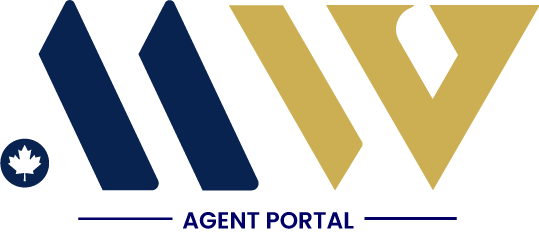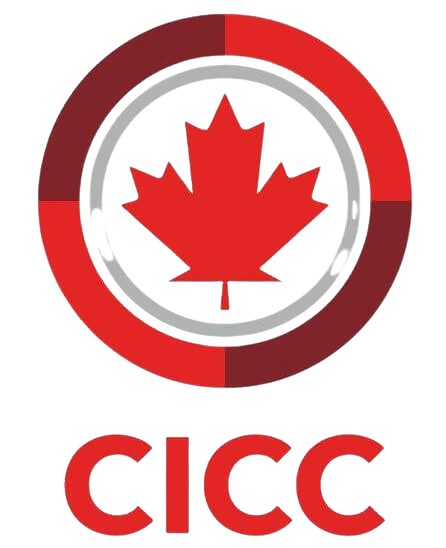What is an NOC Code?
A common question is, “What is an NOC code?”. The National Occupational Classification (NOC) is a nationally recognized and standardized system that assigns a four-digit code and job description to every occupation in the Canadian labour market.
When you are asked on your immigration application to identify your work, you’ll need to do so by indicating the NOC code that best fits your experience. There are certain Canadian immigration programs that are limited to applicants with experience in occupations with specific NOC codes.
Most of Canada’s economic immigration programs, including the Express Entry linked programs use the NOC system. This is why it’s so important to understand NOC codes and how it works, as this will only help your success as an applicant.
How Do NOC Codes Work?
 Every NOC code has an associated job title, lead statement, and list of major duties and responsibilities. When it comes to Canadian immigration and determining your NOC code, your job title is not as important as your work experience, which needs to match the lead statement. You should have performed most of the duties and responsibilities listed. This means that your work experience could fall under several different NOC codes and your job title may be under an NOC code that doesn’t actually match your experience. Knowing this is important to your application as choosing the incorrect code could have your application refused.
Every NOC code has an associated job title, lead statement, and list of major duties and responsibilities. When it comes to Canadian immigration and determining your NOC code, your job title is not as important as your work experience, which needs to match the lead statement. You should have performed most of the duties and responsibilities listed. This means that your work experience could fall under several different NOC codes and your job title may be under an NOC code that doesn’t actually match your experience. Knowing this is important to your application as choosing the incorrect code could have your application refused.
The NOC occupations are arranged by skill type and skill level. Generally, the skill type is the first digit of the code and the skill level by the second digit. When an immigration program refers to occupations as high-skilled or low-skilled, they are referring to the second digit of the NOC code.
NOC Skill Types
The NOC Skill Type identifies the industry of the occupation. There are 10 Skill Types in the NOC matrix:
- 0 – Management occupations
- 1 – Business, finance, and administration occupations
- 2 – Natural and applied sciences and related occupations
- 3 – Health occupations
- 4 – Occupations in education, law and social, community and government services
- 5 – Occupations in art, culture, recreation and sport
- 6 – Sales and service occupations
- 7 – Trades, transport and equipment operators and related occupations
- 8 – Natural resources, agriculture and related production occupations
- 9 – Occupations in manufacturing and utilities The first digit of most NOC codes identifies the Skill Type of the occupation.
NOC Skill Levels
There are four skill levels in the NOC matrix, they identify occupations by the amount and type of education and training that would be needed to perform the duties of a certain occupation. The skill level assigned to an occupation also depends on how complicated the job duties are:
- A: Occupations that usually require university education
- B: Occupations that usually require college education or apprenticeship training
- C: Occupations that usually require secondary school and/or occupation-specific training
- D: Occupations that usually require on-the-job training
There is an exception to the above rule when it comes to management occupations. Since there are management positions in all industries, the second digit of all management jobs indicates the industry of the occupation. High-skilled and low-skilled work For the purpose of immigration:
- Skill Level A or B, or Skill Type 0 is considered high-skilled work.
- Skill Level C or D is considered low-skilled work.
There are a few immigration programs that may refer to semi-skilled work, which includes all occupations classified as NOC Skill Level A, B, or C, or in Skill Type 0. Example: An information systems manager would be classified as NOC code 0213. The first digit, 0, shows that it’s a management position. The second digit, 2, shows it as a position in the national and applied sciences industry.
Major and Minor Groups
There will be times where immigration programs will refer to NOC Major or Groups.
- Major Groups: this refers to the first two digits of an NOC code together.
- Minor Groups: this refers to the first three digits or an NOC code.
Finding Your NOC Code
Immigration, Refugees and Citizenship Canada (IRCC) has created a tool that makes finding your NOC code faster and easier. You can search your NOC code on the tool by using words that are in your job title and related to your main duties to find a suitable match.
Now that you know the answer to the question “What is an NOC code?” the next thing to do is visit this page to learn more on how to find your NOC job title code and skill type.
The Regulated Canadian Immigration Consultants (RCICs) we work with are experts in Canadian immigration and can assist you in choosing the correct NOC code for your work experience.
Click on the link below to start your journey!
Immigration FAQ’s
Your Comprehensive Ranking System (CRS) is based on the following factors:
- Provincial Nomination;
- Offer of employment;
- Core capital factors;
- Your common-law partner or spouse;
- Skill transferability;
- Previous Canadian study experience;
- Siblings in Canada; and
- French and English Ability
Provincial Nomination (600 Points)
600 points are awarded for an enhanced Nominee certificate from a province in Canada through the Provincial Nominee Program (PNP).
Job Offers (50-600 Points)
A Canadian job offer will also earn you points; the number of points is based on the NOC level of the particular job.
Core Human Capital Factors (600 Points)
These take into account your level of education, for example:
- Certificate;
- Diploma; or
- Degree
If you intend to gain higher qualifications, your score will increase. This same point system applies to your legal partner or spouse if you applied together.
Language (150 Points)
Improving your language skills in either English or French through a recognized Canadian institution can also raise your CRS score.
Work Experience
The more experience you have, the more points you earn. This also applies to your legal partner or spouse.
You must:
- Meet all the requirements of the:
- Federal Skilled Worker Class (FSWC);
- Federal Skilled Trades Class; or
- Canadian Experience Class
You must register with the Canadian Job Bank within 30 days unless:
- You have arranged employment from a Canadian employer; or
- You have received a nomination through the Provincial Nominee Program
You must have a Labour Market Impact Assessment in order to earn Comprehensive Ranking System points, unless you:
- Have worked full time for an employer with a work permit for a least one year (or a part-time job for an equal amount of time);
- Have a valid job offer from a Canadian employer that is for at least one year in duration; or
- Have a valid employer specific temporary work permit exempt under code R204 (a), (c) or R205
If you qualify for any of the Federal Programs, you have 30 days from when you submit your profile to complete the rest of the requirements like registering with the Job Bank. If you do not, your Express Entry profile cannot be activated.
There are three programs to apply for under Express Entry:
- Skilled Federal Worker Program (SFWP);
- Skilled Federal Trades Program (SFTP); or
- Canadian Experience Class (CEC)
The following factors affect your eligibility:
Work Experience
You must:
- Have gained relevant work experience for a job listed in the National Occupation Classification (NOC). Note: Work experience gained in another occupation you have not applied for does not apply;
- Have gained work experience in the past 10 years;
- Have received payment for your work;
- Have a job at skill level 0, A or B;
- Have a year’s worth of work experience (minimum 1,560 hours); and
- Prove that your work experience fits the requirements of the NOC
Language Ability
You must:
- Meet the minimum language level set by the Canadian Language Benchmark (CLB);
- Take a language proficiency test That is approved by IRCC;
- You must meet the language requirements for either French or English; and
- Your language test results must not be more than two years old when you apply
Education
You must:
- Have completed canadian secondary education; and a tertiary certificate, diploma or degree;
- Have completed foreign credentials; or
- Have an Educational Credential Assessment (ECA) approved by IRCC
Proof of Funds
You must prove you can support yourself and your family financially, unless:
- You are working in Canada; or
- You have a valid job offer from a Canadian employer
Additional Factors to Be Considered
- Age;
- Valid job offers; and
- Adaptability
This program is aimed at people who wish to become permanent residents (PR) of Canada. This only applies to people who qualify in a skilled trade.
Minimum Requirements
You must:
- Plan to live outside of Quebec (The province has its own Quebec Skilled Worker Program);
- Meet the language requirements for English and French;
- Have two years’ work experience in a skilled trade (or equal amount of experience in a part time position;
- Have work experience within the past 5 years;
- Meet the job requirements in the National Occupational Classifications;
- Have a full-time job offer from a Canadian employer for a minimum of one year; or
- A certificate of qualification for that skilled trade that is confirmed from the Canadian provincial or territorial government authority
Skilled Work Experience
These skilled trades are involved in the Federal Skilled Trades Program as ranked by the National Occupational Classification.
| Group Number | Job Description |
|---|---|
| 72 | Industrial, construction or electrical trades |
| 73 | Equipment operation and maintenance |
| 82 | Technical and supervisors in:
|
| 92 | Processing, manufacturing and utilities supervisor Central control operators |
| 632 | Cooks and chefs |
| 633 | Bakers and butchers |
Education
You do not need a specific qualification for this program, but you can earn more CRS points if you have:
- Foreign qualifications;
- An Educational Credential Assessment (ECA) approved by IRCC;or
- A Canadian certificate, diploma or degree
Language Ability
- Pass the Canadian Language Benchmark test at minimum language level;
- The language test must be approved by IRCC; and
- Your test results must not be older than two years when you apply.
Be assessed by the province or territory
Each of the provinces or territories have different requirements for the skilled trade industry.
Minimum Requirements
Minimum Requirements
You must:
- Have skilled work experience for at least 12 months (either full time or part time for the same amount of time) within three years before you apply;
- Have the required language skills needed for your job;
- Have gained experience in Canada with proper authorization;
- Have the language proficiency needed for your job; and
- Have plans to live outside of Quebec
Skilled Work Experience
Work experience must be gained in the following job levels based on the National Occupational Classifications.
| Job Description | Skill Type |
|---|---|
| Technical jobs | B |
| Skilled trades | B |
| Professional jobs | A |
| Managerial jobs | 0 |
Education
You do not need an education to apply for this program, but you can score higher if you:
- Have a high school diploma, tertiary diploma or degree;
- Have an Educational Credential Assessment (ECA) approved by IRCC; or
- Have completed foreign credentials
Language Ability
To qualify you must score well in the various language tests determined by the CEC.
| Canadian Language Benchmark Score Needed | Job Level (NOC) |
|---|---|
| 7 | 0 |
| 7 | A |
| 5 | B |
The language test must be approved by IRCC and must not be older than two years when you apply.
- Have skilled work experience for at least 12 months (either full time or part time for the same amount of time) within three years before you apply;
- Have the required language skills needed for your job;
- Have gained experience in Canada with proper authorization;
- Have language levels need for your job; and
- Have plans to live outside of Quebec
Note:work experience gained as a student or a self-employed individual does not count.
Skilled Work Experience
Work experience must be within three years of applying for the Canadian Experience Class. Work experience must be gained in the following job levels as based on National Occupational Classifications.
| Job description | Skill Type |
|---|---|
| Technical jobs | B |
| Skilled trades | B |
| Professional jobs | A |
| Managerial jobs | 0 |
Education
You do not need an education to apply for this program, but you can score higher if:
- have a high school diploma and/or tertiary diploma or degree;
- have an Educational Credential Assessment (ECA) approved by Immigration, Refugees and Citizenship Canada; or have
- completed foreign credentials
Note: Only apply for an Educational Credential Assessment (ECA) if your foreign education is either equal to, or higher than the Canadian education standard.
Language Ability
To qualify you must score well in:
- the Canadian Language Benchmark; and
- the language tests
| Canadian Language Benchmark score needed | Job level (NOC) |
|---|---|
| 7 | 0 |
| 7 | A |
| 5 | B |
The Language Test must be approved by the Immigration, Refugees and Citizenship Canada .These tests are based off your French and English ability to:
- Read;
- Speak;
- Listen; and
- Write
Your test results must be included if you are applying for this program through the Express Entry program. Note: these tests must not be older than two years when you apply.
Principal Applicant
When you apply for the Express Entry, and want to immigrate with your common law partner, you must choose who will be the principal applicant.
Note: a common law partner is a person who has been married to you for one year. This applies for same sex and opposite sex partners.
Choose the principal applicant by looking at who will score the highest points under the Express Entry program.
Inadmissibility
You may be inadmissible if you are:
- Considered a security risk;
- Lied about information in your application or interview;
- Have ties to organised crime;
- Can’t support yourself financially;
- Have terrible financial health;
- Committed a crime outside of Canada;
- Do not qualify under Canada’s immigration laws; and
- Have a family member that is not allowed in the country
Choosing Where To Live
Note:under the Express Entry you can apply to live in other provinces/territories in Canada, except Quebec. This province has its own set of requirements needed for you to enter.
These are the factors that are used to calculate CRS Points
- Age (max 110 points);
- Education (max 150 points);
- Language proficiency (max 160 points);
- Canadian Work Experience (max 80 points);
- Skills Transferability (max 100 points); and
- Additional Factors (max 600 points)
A legal agent is an authorized representative that must be:
- A paralegal or lawyer who has a good relationship with the provincial or territorial legal societies of Canada;
- A Regulated Canadian Immigration Consultant (RCIC) who has a good relationship with the Immigration Consultants of Canada Regulatory Council; or
- A notary who has a good relationship with the Chambre des notaires du Québec
Note: An unauthorized agent will not be able to help you with your application.
If you want to ensure that your Registered Canadian Immigration Consultant (RCIC) is an authorized consultant, you can check with the Immigration Consultants of Canada Regulatory Council (ICCRC).
The ICCRC’s website has a register of all the persons that are qualified to be Canadian Immigration Consultants. Any individual who claims to be a legal consultant will have a RCIC code. If there are no results for a person’s RCIC code, then they are not a legal Canadian Immigration Consultant.





